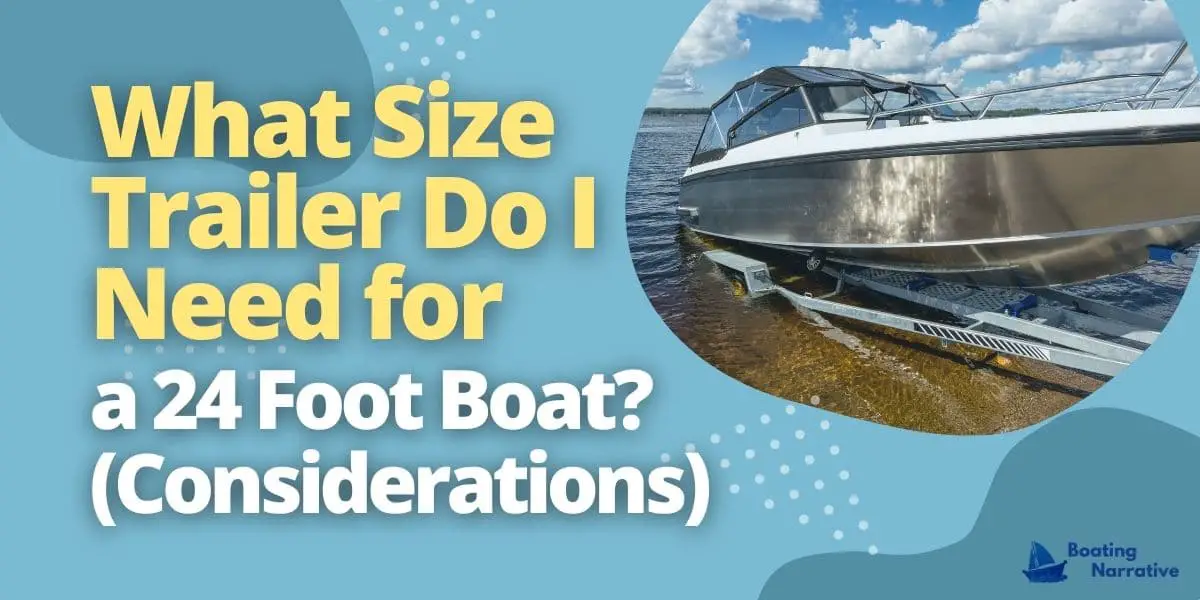When it comes to towing a boat, there’s a lot that goes into making sure you have a safe and enjoyable trip. Choosing the right size camper trailer is essential. A trailer that’s too small can be dangerous, while a trailer that’s too big can be a hassle to tow and can damage your boat.
In this article, we’ll help you calculate the size of trailer you need for your boat and provide some valuable suggestions on what to look for when choosing a trailer.
We’ll also take a look at the pros and cons of a 24-foot trailer, and what boat trailer manufacturers have to say about this size.
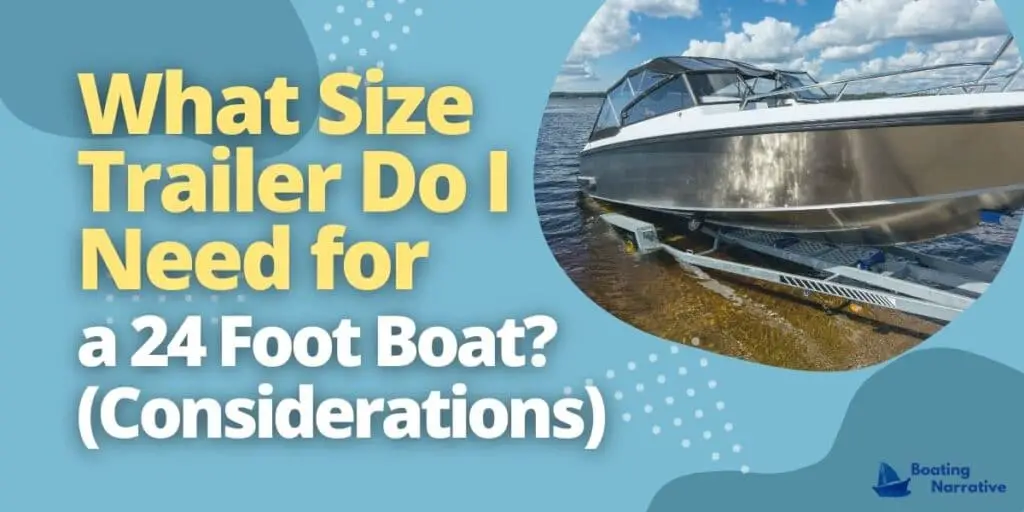
Here’s The Answer To What Size Trailer I Need for a 24-Foot Boat:
A 24-foot boat needs a 21- 27 foot long trailer with a 5 to 8-foot wide trailer, which is the standard width for most boat trailers. It will also need a trailer with a minimum of 3,000-pound capacity.
What Size Trailer Do I Need for a 24 Foot Boat?
The size of your boat is the most critical factor when choosing a trailer. You need to make sure the trailer is big enough to hold your boat without overloading it.
To calculate the size of your boat’s trailer, you’ll need to know the weight of your boat and the weight of the trailer. The weight of the trailer includes the weight of the boat, the weight of the trailer frame, the weight of the tires, and the weight of the tongue.
There are a few different ways to calculate the size of your boat’s trailer. One rule of thumb when picking out the right trailer is to add 100 to 150 pounds per foot to the length of your boat. This will give you a trailer that’s big enough to hold your boat and the weight of the trailer.
Another option is to use the specifications provided by the trailer manufacturer. This information is usually included in the owner’s manual or on the manufacturer’s website.
Many boat trailer manufacturers have a sizing chart that will help you choose the right trailer for your boat. The chart will list the weight of the boat and the recommended trailer size.
What is the Resale Value of a 24-Foot Trailer?
One thing to consider when choosing a trailer size is the resale value. A 24-foot trailer is a fairly common size, so it should be easy to sell if you decide you don’t need it or want a bigger trailer.
The resale value of a trailer depends on a number of factors, including the make and model, age, and condition of the trailer.
If you’re looking for something that will hold its value, a brand new, top-of-the-line model may be the best option. Older or used trailers may be a good option if you’re on a budget, but keep in mind that they may not hold their value as well as newer trailers.
What are the Pros and Cons of a 24-Foot Trailer?
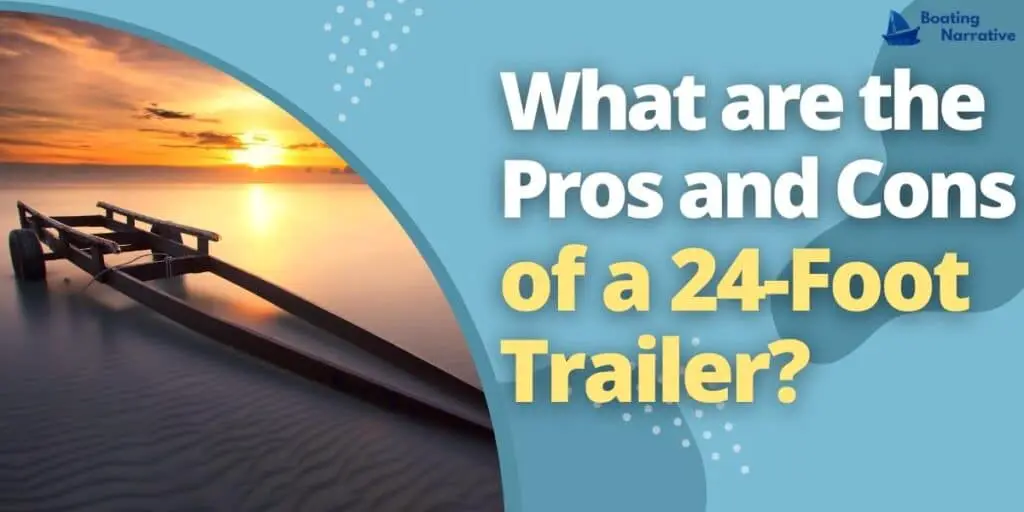
These are a number of pros when choosing a 24-foot trailer:
- A 24-foot trailer is a common size that’s easy to find and purchase.
- They’re usually affordable.
- A 24 foot trailers are generally big enough to hold most boats and the weight of the trailer.
- Some cons to consider when choosing a 24-foot trailer include:
- A 24-foot trailer is not as roomy as some other Trailer sizes, like 26 feet or 30 feet.
- They may not be able to carry as much weight as a bigger trailer.
- A 24 foot trailers are not as sturdy as some other Trailer sizes, so they may not be the best choice for rough terrain.
What Do Boat Trailer Manufacturers Say?
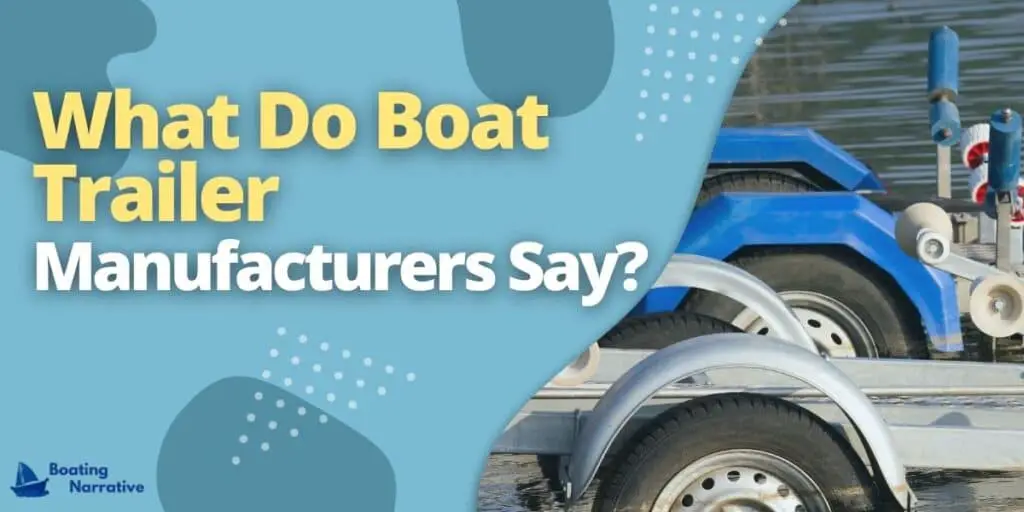
Boat trailer manufacturers generally recommend a 24-foot trailer for boats that are up to 24 feet long. A trailer this size can hold a boat up to 6,000 pounds.
Many manufacturers also offer a tandem axle trailer for boats that are longer than 24 feet. This type of trailer has two axles, which gives it more stability and can handle a heavier load.
What Size Trailer Do I Need for a Pontoon Boat?
If you have a pontoon boat, you’ll need a trailer that’s big enough to hold the boat and the pontoon tubes. A 24-foot trailer is a good option for boats that are up to 24 feet long.
Many pontoon boats are wider than traditional boats, so it’s important to choose a trailer with enough space to accommodate the width of your boat. The width of the trailer should be at least as wide as the widest point of your boat.
Many pontoon boat trailers come with a roller or a ramp to make launching and retrieving your boat easier.
How to Calculate the Size of Your Boat’s Trailer
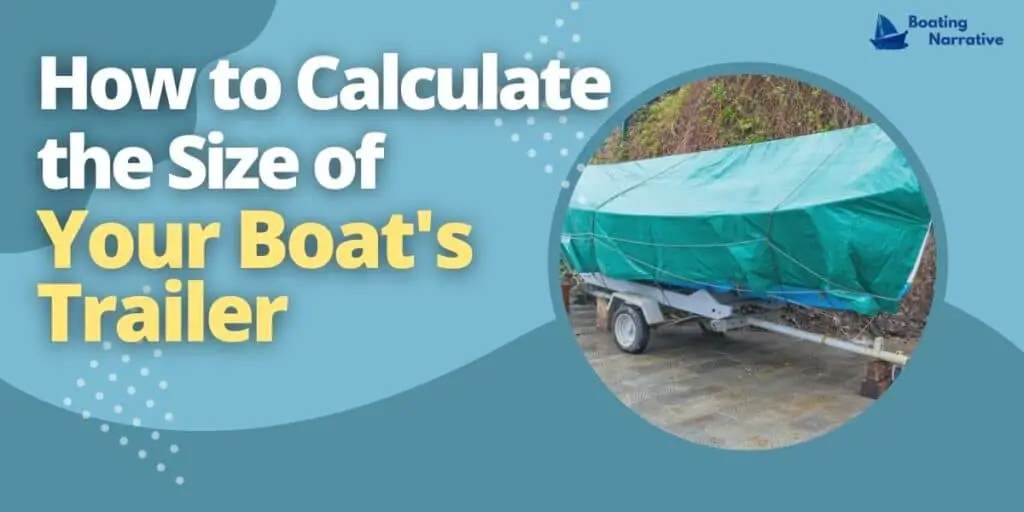
Now that you know the size of trailer you need for your boat let’s take a look at how to calculate the size of your boat’s trailer.
To calculate the weight of your boat, you’ll need to know the weight of your boat and the weight of the trailer. The weight of the trailer includes the weight of the boat, the weight of the trailer frame, the weight of the tires, and the weight of the tongue.
There are a few different ways to calculate the size of your boat’s trailer. One rule of thumb is to add 1,000 pounds to the weight of your boat. This will give you a trailer that’s big enough to hold your boat and the weight of the trailer.
Another option is to use the specifications provided by the trailer manufacturer. This information is usually included in the owner’s manual or on the manufacturer’s website.
Many boat trailer manufacturers have a sizing chart that will help you choose the right trailer for your boat. The chart will list the weight of the boat and the recommended trailer size.
How Many Wheels Should My Trailer Have?
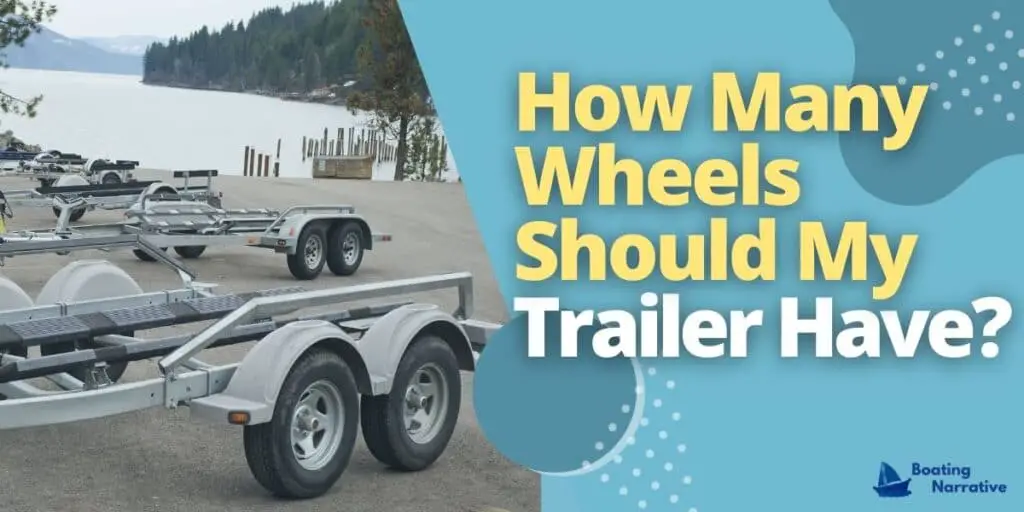
Most boat trailers have either two or four wheels. If your boat is more than 24 feet long, you’ll need a trailer with four wheels. If your boat is less than 24 feet long, two wheels will be fine.
If you plan to tow your boat with a vehicle, be sure to buy a trailer that has the capacity for the weight of your boat and the weight of your vehicle. Many trailers have maximum tow weights of 10,000 pounds or more.
Dose a Different Number Axle in the Trailer Matter?
There is no definitive answer to this question. Some trailer manufacturers recommend using a specific number of the axle in the trailer, while others don’t care as long as the axle size is in the correct range.
Look for a trailer that has been designed specifically for boat trailers and doesn’t require modification to fit your vehicle.
Some of the Different Types Are:
- Two axle trailers: These trailers have a single axle in the front and a single axle in the rear. They’re usually smaller than a trailer with three or four axles, making them easier to tow.
- Three axle trailers: These trailers typically have two front axles and one rear axle. This configuration is more stable than two-axle trailers but can be harder to tow because it requires more torque to move the vehicle
What Type of Hitch Do I Need?
There are two types of hitches available – a ball hitch and a pintle hitch. A ball hitch is the most common type and is attached to the tow vehicle with a ball mount. A pintle hitch is more common for heavy-duty applications and is attached to the tow vehicle with a pintle hook.
Installing a tow hitch is easy and only takes about 30 minutes. There are even kits available to help you install this part yourself in the garage or shop. Even if you don’t have someone helping, hiring an installer isn’t expensive at all (especially compared to buying your trailer).
The flagman can then bring your boat out while it’s still under warranty and leave the rest up to whoever is installing it.
If you have a tow vehicle with a trailer hitch, you’ll need a ball hitch. If you don’t have a trailer hitch, you’ll need to get one installed.
Which Part of the Country Should I Tow My Boat?
One final consideration is where you’ll be towing your boat. Check your state regulations to see which side of the road you must drive on when towing a boat.
Many states have “road transport only” zones near water that prohibit drivers from using regular roads.
Will I Need to Buy a License?
Depending on your state, you may be required to purchase a special trailer license. If there is no specific boat trailer regulation in your area, the Department of Natural Resources (DNR) or DMV will likely have information about how to get one when filing for registration and titling of the tow vehicle.
You can also check with the boat manufacturer if they require licenses as well.
Police or State Motor Vehicle Office Check My License?
When you turn your vehicle in to register, tow car, boat trailer, or personal watercraft (PWC), ask about titling requirements for it.
Your state will want to know what kind of vehicles and trailers law enforcement can tow when necessary if there’s a weight limit that applies to all vehicles steered by handlebars rather than pedals, and whether trailer brakes are required.
Is A Towbar Necessary?
A towbar is not always necessary. If you have a ball hitch, the trailer will attach to the tow vehicle with the hitch ball. If you have a pintle hitch, the trailer will attach to the tow vehicle with the pintle hook.
However, a towbar can be helpful in certain situations. For example, if you’re towing your boat on a long trip, a towbar will help keep the trailer in line with the tow vehicle.
What To Look For In A Trailer
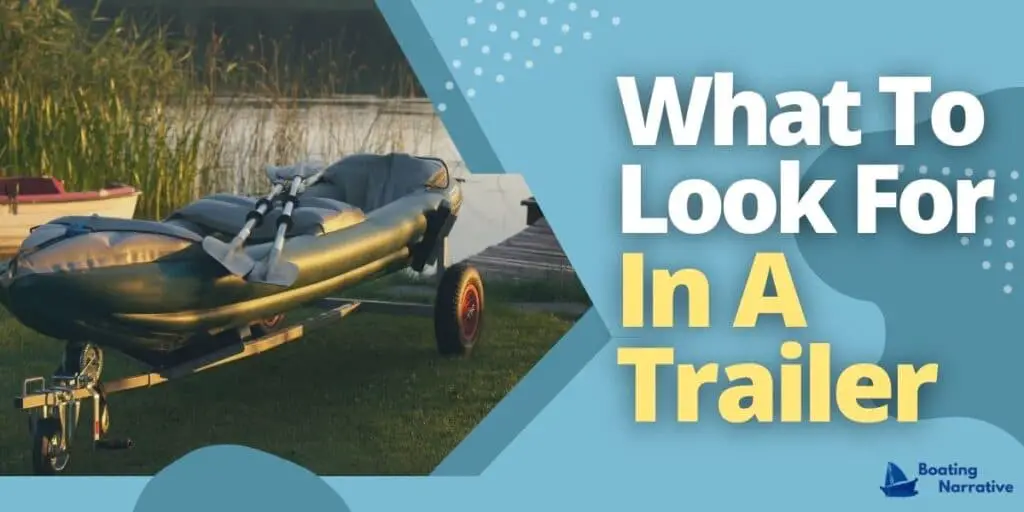
When choosing a trailer, there are a few things you need to consider.
First, you need to make sure the trailer is the correct size for your boat. It should be long enough to accommodate your boat and wide enough to fit the hull.
The trailer should also be rated for the weight of your boat. The tires should be the correct size and type for the weight of the trailer. And the trailer should have surge brakes to help stop the boat when it’s being towed.
The trailer should also have a good fit with your tow vehicle. The hitch ball should be the correct size, and the trailer should have the correct hitch type.
Finally, the trailer should be corrosion-resistant and have a tight turn radius to make maneuvering easier.
What Is A “Trailer Package?”
A trailer package is a term used by boat manufacturers to describe the accessories that come with the trailer. The package may include a winch, load guides, and tubes. It may also include a hitch, a towbar, and a brake controller.
How Much Does A Trailer Cost?
The cost of a trailer can vary depending on the size and type of trailer you choose. However, you can expect to pay anywhere from $1,000 to $10,000 for a quality trailer.
Trailer Buyers Guide
When purchasing a trailer, there are a few things you need to know.
First, you need to make sure the trailer is the correct size for your boat. It should be long enough to accommodate your boat and wide enough to fit the hull.
The trailer should also be rated for the weight of your boat. The tires should be the correct size and type for the weight of the trailer. And the trailer should have surge brakes to help stop the boat when it’s being towed.
The trailer should also have a good fit with your tow vehicle. The hitch ball should be the correct size, and the trailer should have the correct hitch type.
Finally, the trailer should be corrosion-resistant and have a tight turn radius to make maneuvering easier.
If you’re looking for a quality boat trailer, the best place to start is with a trailer package from your boat manufacturer. They will have a variety of trailers to choose from and will be able to help you select the right one for your needs.
Factors Affecting Size:
Bow Eye
The bow eye to transom/drain plug measurement is the most critical measurement when selecting the proper trailer for your boat. When determining bow eye to transom measurements, you should never include a swim platform, bow pulpits, or euro transoms.
Many manufacturers include boat lengths of Swim platforms and bow pulpits in an overall length of Boat (Loa).
Steel Trailers vs. Aluminum trailers
There is no real wrong answer when it comes to trailer choice, but most boat Owners lean towards steel trailers because of the following reasons:
- Steel trailers are built to last- aluminum trailers can’t carry heavy loads.
- A properly fitted steel hitch will distribute the weight more evenly, which can prolong the life of your tow vehicle.
- The frame on a steel trailer is also typically triple galvanized for extra corrosion protection.
Bunk Trailers vs. Rollers Trailers?
Bunk trailers are the traditional type of trailer used for towboats. They have a series of wooden or aluminum bunks that the boat rests on. This type of trailer is best for boats that are 24 feet or shorter.
The tongue weight of the trailer – the weight of the trailer pushing down on the hitch – should not exceed 1,200 pounds. If it does, the trailer will be unstable and could cause an accident.
Rollers trailers are a newer type of trailer that is becoming more popular. They have a series of rollers that the boat rests on.
This type of trailer is best for boats that are longer than 24 feet. The tongue weight of the trailer should not exceed 3,000 pounds. If it does, the trailer will be unstable and could cause an accident.
Bunk trailers are cheaper than rollers trailers. They are also easier to maintain, as there are fewer moving parts. However, they can be difficult to use on long distances, as they have a smaller swing radius.
Tiers For The Trailers
When you are looking at buying a trailer for your boat, it is important to understand the tiers of trailers. Trailers can be classified into three types: Light-duty, medium-duty and heavy-duty.
Radial tiers are used trailers which is much better when you tow a boat the way that trailers are designed to be towed, while other types of trailer tiers can cause problems.
Conclusion
When selecting the right trailer for your boat, it is important to consider a few key factors, including bow eye to transom measurement, tow vehicle capacity, and weight capacity. From there, you can select the right trailer for your needs.

